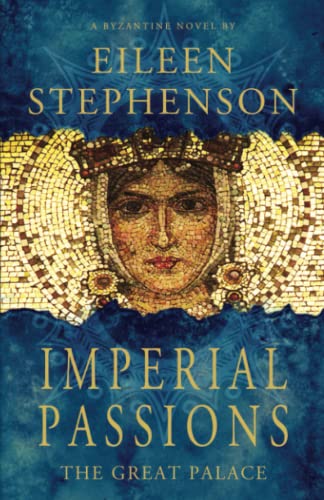Imperial Passions: The Great Palace
In 11th-century Byzantium, John Comnenus comes to power as the second in command of the empire—though it is his ambitious wife, Anna Dalassena, who will rule much of the empire for decades to come. She takes on the official title of Caesarissa and thus begins a lifetime of political and social work. Her days play out in the public eye as wife to the emperor’s brother, and in her private life she guides her husband in prudent court maneuvering, all while bearing his children and managing palace operations. In the small moments of daily life, whether walking with the eunuchs who guard the women of the court or receiving secondhand reports of a rebellion, Anna nurtures relationships with many powerful factions, always conscious of her birthright and determined to see the empire ruled well, and ideally by a member of her own family.
Stephenson’s novel portrays women’s traditional roles in the distant past and still presents the tale through a feminist lens, a strong combination. A sewing session clues Anna to a potential marriage that will shift the balance of power, and befriending the later emperor’s wife keeps her husband in the court’s good graces. Anna is a noblewoman who historically benefited from her social position and her machinations from within the social structure of Constantinople; it is incredibly interesting to watch a woman use the system in such powerful ways. Though her chief focus becomes her children and their struggles and triumphs, Anna is never passive, always empowered to drive the action of her own life. Structuring her novel as a political thriller with energetically charged dialogue, Stephenson brings the complex ancient world to life for modern audiences.










